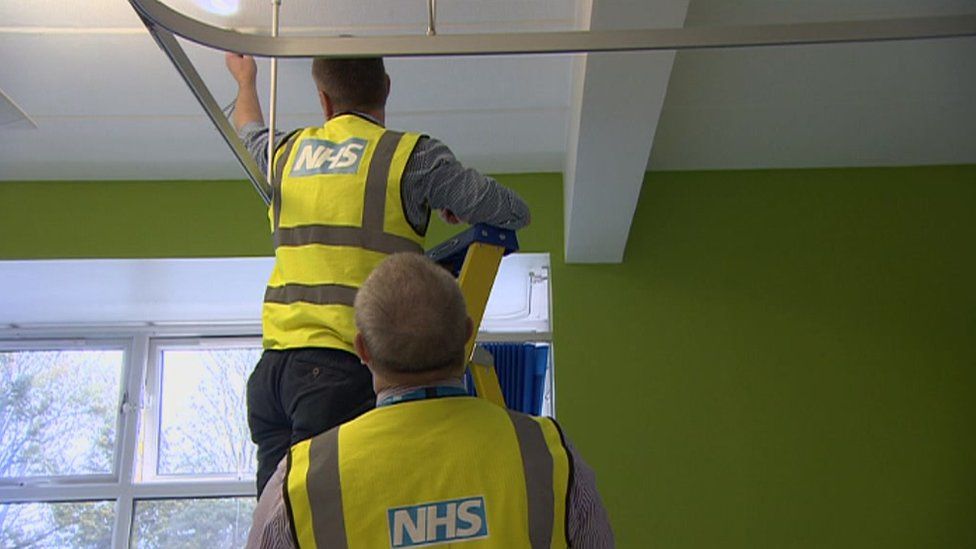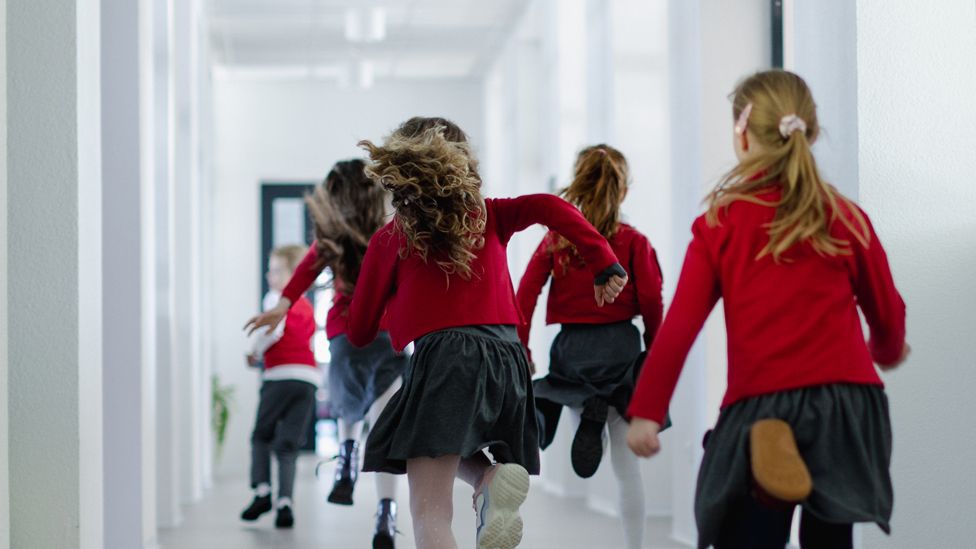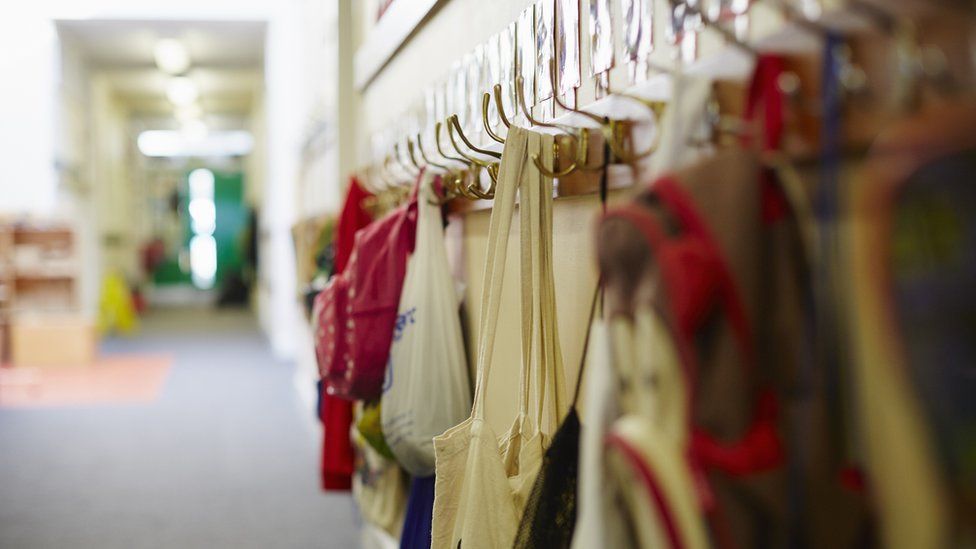
More than 100 schools, colleges and nurseries in England have been told to immediately shut buildings made with a concrete prone to collapse, unless safety measures are in place.
Thousands of pupils now face disruption after the government ordered action only days before the start of term.
School leaders described this as a “scramble” after a lack of investment.
Education Secretary Gillian Keegan said the decision followed “new evidence” about the material.
Buildings with reinforced autoclaved aerated concrete (RAAC) must introduce new safety measures which could include propping up ceilings.
Until this is done children may have to be moved into temporary classrooms.
Two primary schools in Bradford – Crossflatts and Eldwick – are among those affected, with parts closed to pupils after the concrete was identified, the council said.
The Department for Education (DfE) said “any space or area with confirmed RAAC should no longer be open without mitigations in place”.
It has not given a timeline for replacing the RAAC, or named the places affected.
The risk of injury or death from a school building collapse was said to be “very likely and critical” by the watchdog the National Audit Office (NAO) in June, after it highlighted concerns for school buildings that still contained RAAC.
This is a lightweight form of concrete used widely between the 1950s and mid-1990s.
While the vast majority of schools and colleges will be unaffected by this announcement, the NAO report identified 572 schools where this concrete might be present.
There are 156 settings in England with confirmed RAAC, according to DfE data. Of those, 52 already had safety mitigations in place, and 104 were being contacted this week about getting them in place.
Ms Keegan said: “We must take a cautious approach because that is the right thing to do for both pupils and staff.
“The plan we have set out will minimise the impact on pupil learning and provide schools with the right funding and support they need to put mitigations in place to deal with RAAC”.
Julie McCulloch, director of policy at the Association of School and College Leaders, which represents mostly head teachers, said the government had “failed to invest sufficiently in the school estate” and called the announcement a “scramble”.
She said it was “clearly vital”, but “the actions these schools will need to take will be hugely disruptive, and this will obviously be worrying for pupils, families and staff”.
“The government should have put in place a programme to identify and remediate this risk at a much earlier stage,” she added.

Are you a teacher at an affected school? Is your child’s school impacted? Share your experiences by emailing haveyoursay@bbc.co.uk.
Please include a contact number if you are willing to speak to a BBC journalist. You can also get in touch in the following ways:
- WhatsApp: +44 7756 165803
- Tweet: @BBC_HaveYourSay
- Upload pictures or video
- Please read our terms & conditions and privacy policy
If you are reading this page and can’t see the form you will need to visit the mobile version of the BBC website to submit your question or comment or you can email us at HaveYourSay@bbc.co.uk. Please include your name, age and location with any submission.
Related Topics
-
-
21 hours ago
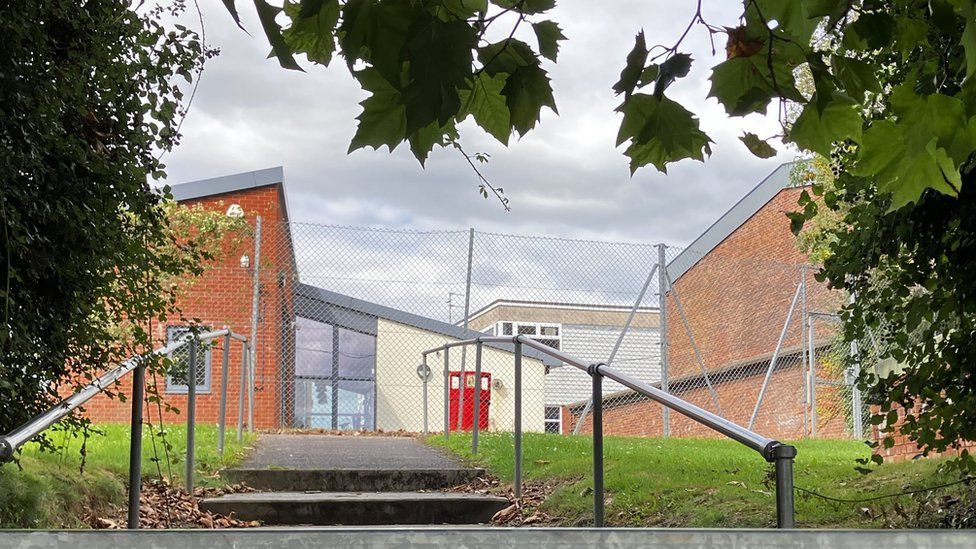
-
-
-
6 hours ago
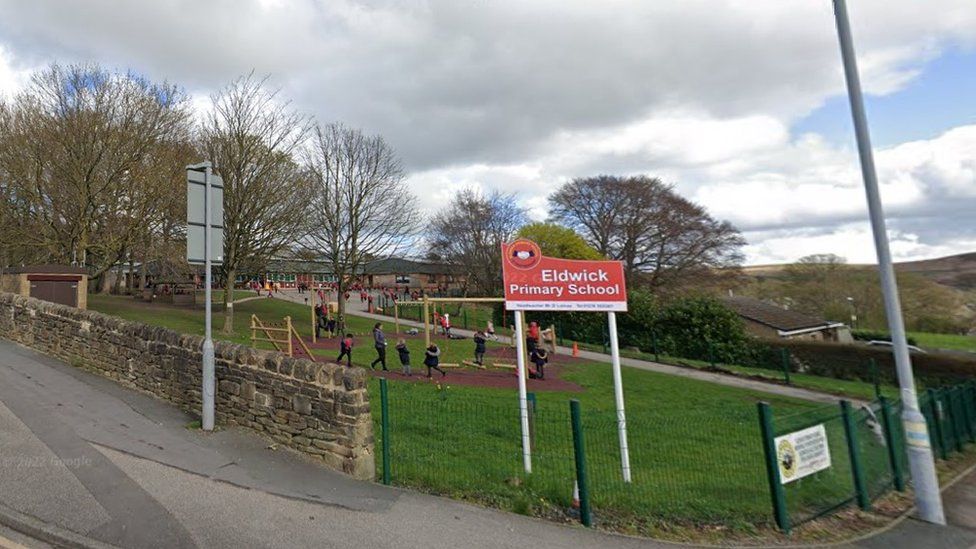
-

